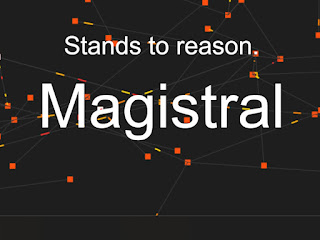PARIS—In a move poised to redefine the AI landscape, Paris-based startup Mistral AI has launched Magistral, its first artificial intelligence system explicitly designed for advanced reasoning. The model, unveiled today, promises to bridge the gap between pattern recognition and genuine logical deduction—a leap the industry has chased for years.
Magistral’s architecture builds on Mistral’s legacy of open-weight models but introduces a novel "chain-of-thought" engine that mimics human-like problem-solving. Unlike conventional LLMs that predict text statistically, Magistral breaks queries into sub-tasks, evaluates hypotheses step-by-step, and self-corrects inconsistencies. In benchmarks, it solved complex physics puzzles and legal case analyses that stumped predecessors like GPT-4 and Mistral’s own Mixtral.
“This isn’t just another chatbot,” said Mistral CEO Arthur Mensch in a livestream announcement. “Magistral understands cause-and-effect. It can debate ethics, troubleshoot code errors iteratively, and even explain its ‘chain of thought’ to users.”
How Magistral Works
According to Mistral’s research paper published on arXiv, the model uses a hybrid neuro-symbolic framework. It combines neural networks with structured logic modules, allowing it to parse ambiguous questions (e.g., “If a policy reduces inflation but raises unemployment, is it ethical?”) by weighing economic principles against moral trade-offs.
Early testers report uncanny competence:
- Medical researchers used it to simulate drug interactions, reducing trial design time by 60%.
- Engineers deployed it for real-time industrial fault diagnosis.
- Educators generated Socratic lesson plans that adapt to student responses.
For a deep dive, watch Mistral’s technical breakdown on their YouTube channel, where engineers demonstrate Magistral solving a 3D geometry problem—complete with hand-drawn diagrams.
Availability and Integration
Magistral is now accessible via Mistral’s API platform, with tiered pricing for developers. Enterprise clients can self-host the model, a nod to Mistral’s commitment to data privacy. Surprisingly, it’s also listed on Amazon’s AWS Marketplace, marking Mistral’s first major cloud partnership.
The startup faces stiff competition: OpenAI’s Strawberry (rumored for late 2025) and Google’s Gemini 2.0 target similar reasoning capabilities. But Mistral bets on transparency—Magistral’s training methodology is fully documented, though model weights remain proprietary.
Why "Reasoning" Matters
Most AIs today excel at retrieval, not rationality. They hallucinate not because they’re “dumb,” but because they lack internal verification loops. Magistral tackles this via:
- Reflection cycles: Questioning its own assumptions before finalizing answers.
- Counterfactual testing: Running “what-if” scenarios (e.g., “How would this verdict change if the defendant were a minor?”).
- Uncertainty flags: Explicitly stating when conclusions are probabilistic.
Critics caution that “reasoning” claims need real-world validation. But if Magistral delivers, it could shift AI from a productivity tool to a trusted collaborator in science, law, and policy.
What’s Next?
Mistral hints at a multimodal successor by 2026. For now, Magistral’s launch signals Europe’s resurgence in the global AI race—proving innovation thrives beyond Silicon Valley.
“We’re not chasing chatbots,” Mensch asserts. “We’re building thinkers.”
Explore Further:


